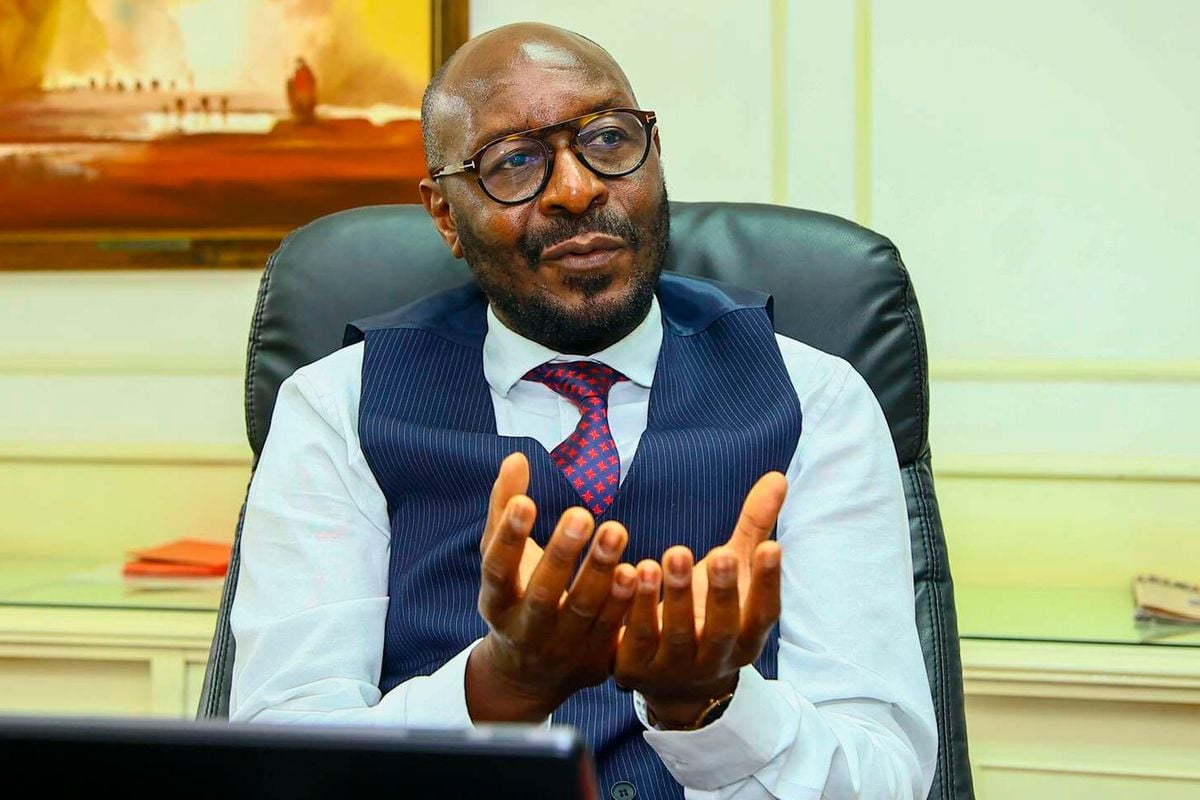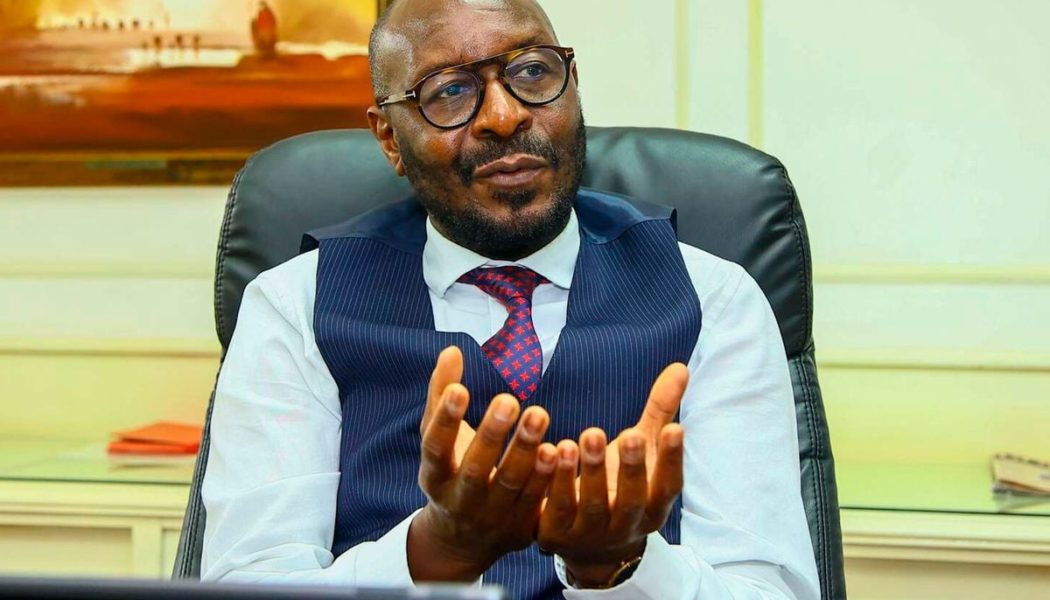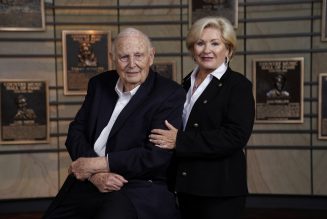
From evolving customer taste and interest to technological shifts, the footwear industry is in fluidity. The race for survival has intensified amid innovation and strategic shifts by players.
The sector has high exposure to factors such as rising costs of materials as well as having to deal with cost-sensitive customers in an environment of rising cost of living.
Benson Okumu, who has been the managing director of Bata Kenya since December 1, 2022, spoke to the Business Daily about guiding the shoemaker through a highly disruptive business environment.
It is almost two years since joining Bata Kenya as the managing director. How does it compare with your stay in Zambia in a similar role?
Bata Kenya is a fully integrated unit because you start from manufacturing, go to wholesale and then to retail and export.
This makes Bata Kenya a very complex operation.
The second aspect is that Bata Kenya is one of the largest Bata units in the world. It is very big in terms of its turnover base and the manufacturing since it supplies the whole of East and Central Africa right from here. It is also very big in terms of its workforce, employing over 2,500 people. In short, the expectations here are very high and with very challenging deliverables.
Looking at the size of Bata Kenya and its significance to the group, what have you had to do different in terms of strategy compared with what would have worked in Zambia?
The kind of strategy that we have to adopt in Kenya has been very volatile. The market here is very dynamic and very fast -paced. For instance, there is much more competition in Kenya than Zambia.
So there has been a lot of thought in terms of how we involve ourselves in setting up our strategies and how we fast-track our performance against the strategy and then how we react to the market forces. That has been key. It is quite involving.
Kenya is a market that you were in before moving elsewhere before returning. What surprises has the market thrown your way?
This market has significantly changed. First, the economic dynamics of the market are now totally different from what it was like 16 years ago. Costs have risen very high.
The cost of fuel, which is a very important input in terms of production, has really gone up. Then we have also had a very sharp increase in inflation, which has eroded disposable incomes and the purchasing power of consumers.
This has really slowed down the footfall in terms of the number of purchasers. Many years ago when we went to the market and invested in advertisement, the reaction of the consumers was very fast and you could see it straight away in the turnover. It is now taking time. Demand is suppressed. People want to buy the goods, but it is very difficult.
You have just painted a really chaotic environment, with uncertainties each new day. As a leader, how do you ensure that you tinker your strategy to deliver the results in such conditions?
The first thing is to set up a very strong team. One of my roles, apart from the fact that I take the leadership
With a very strong and competent team, I ensure that all our strategies in the functional departments are very much aligned. That means making every departmental or functional head understand how their department of function is fitting into the main company objective.
We also ensure that we track it [strategy] very regularly so that it can be able to make us react faster to take any remedies that we need to take.
However, it is not every time that you set up a strategy and then it becomes a winning formula. There are times that we draw a strategy, we see it is not working and then we have to change very fast. So we are very alert and agile in terms of our change of strategy and operational plans.
You have been part of Bata family since 2008. That is over 16 years of your life. That is not in the playbook of many professionals today. How do you guard against laxity, stagnation and familiarity threat when you stay in the same organisation?
I am a guy who believes that whatever works needs to be improved. What has worked for me for all this time is that I have not been in one position. I came in as the finance director for Bata Kenya then my role was expanded to East and Central Africa.
Then within two and half years, I had moved to South Africa as the finance director for the southern region. I ended up taking Zimbabwe, in Malawi and Uganda. So it has been a lot of role enrichment every time.
The organisation kept on adding me responsibilities because, I believe, they felt I had the capacity and the ability to achieve not in one role, but in a multiple facet of roles. This has actually made it very lively and active for me.
I am a finance man. My background is finance, and most of the people in Bata who have been managing directors have come from the commercial side. So with that kind of evolution from finance into various roles, it has been quite a very active career movement for me.
I have come to realise that leading a company whose culture and dynamics you know very well, actually makes you perform much better as compared to going into a very senior position in a new company to start learning the culture.
Most of the time when I am faced with any challenge, I am more in a position to relate it with the structure of how other functions come in together. This because I understand the company very well as opposed to if I was just coming to sit at the top.
One of the harsh assessments made about people with a finance background is that when they transition into leadership, the obsession is about cutting costs and trimming the headcount to make numbers look good. What has been your style in transitioning from managing money to managing people?
I have never been a number cruncher who just deals with numbers. I am somebody who was trained from the word go that every time you want to take a decision, you have to weigh the cost-benefit analysis of that decision. Not just looking at it as “This is the much I am going to spend.”
Have there been times than people have made more sense than numbers?
People have always made more sense than the numbers and I keep on telling people this every day. The number one important person in a company is people. That is why, when you ask me how we are managing to react in the market with different dynamics, I will tell you it is the team.
You can have all the best strategies. You can have all the best investments. But if you don’t have the right people behind all these strategies and investments, they mean nothing. So people make the number one priority sense in a business followed by the strategies that you can talk about or any other operational plans. They should be the obsession of any manager.









